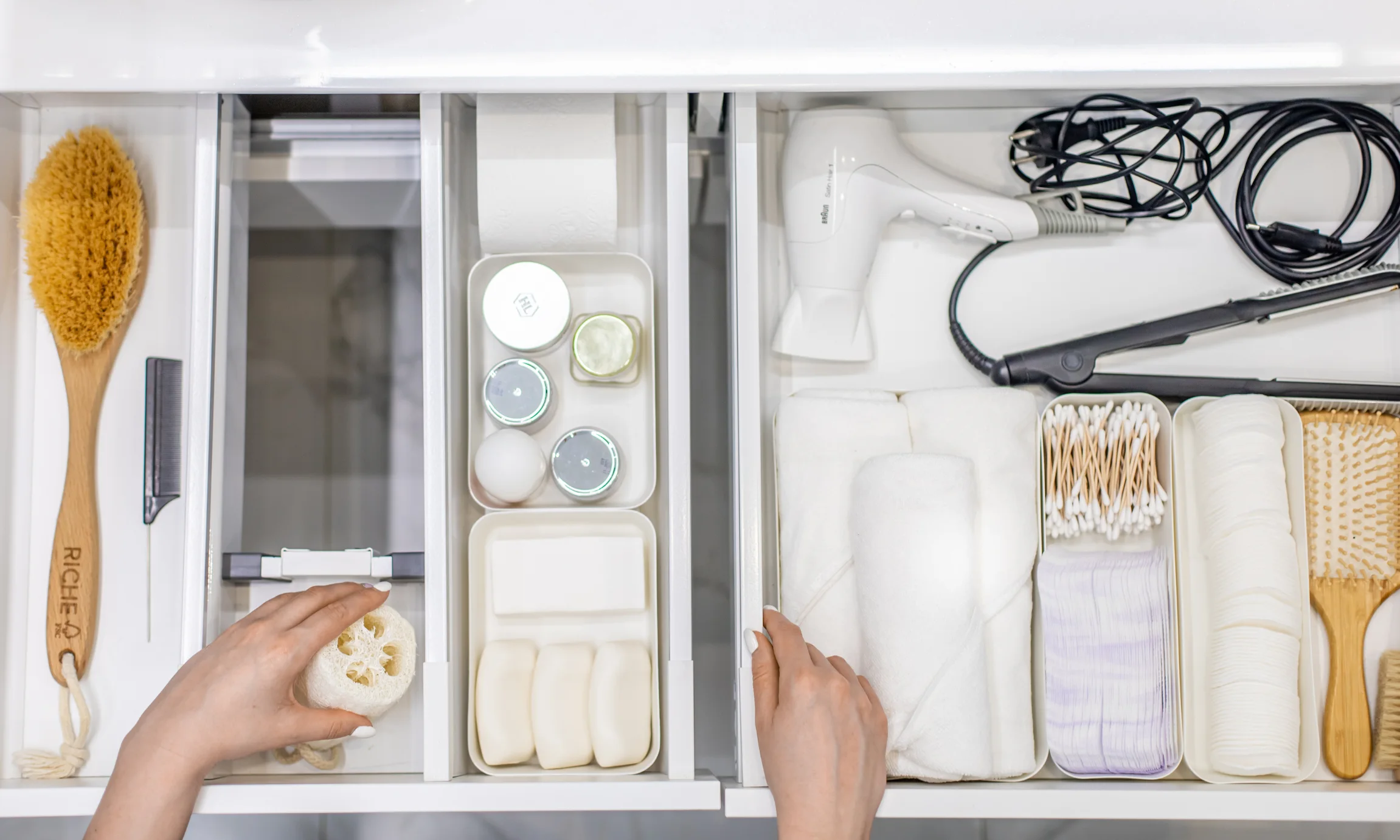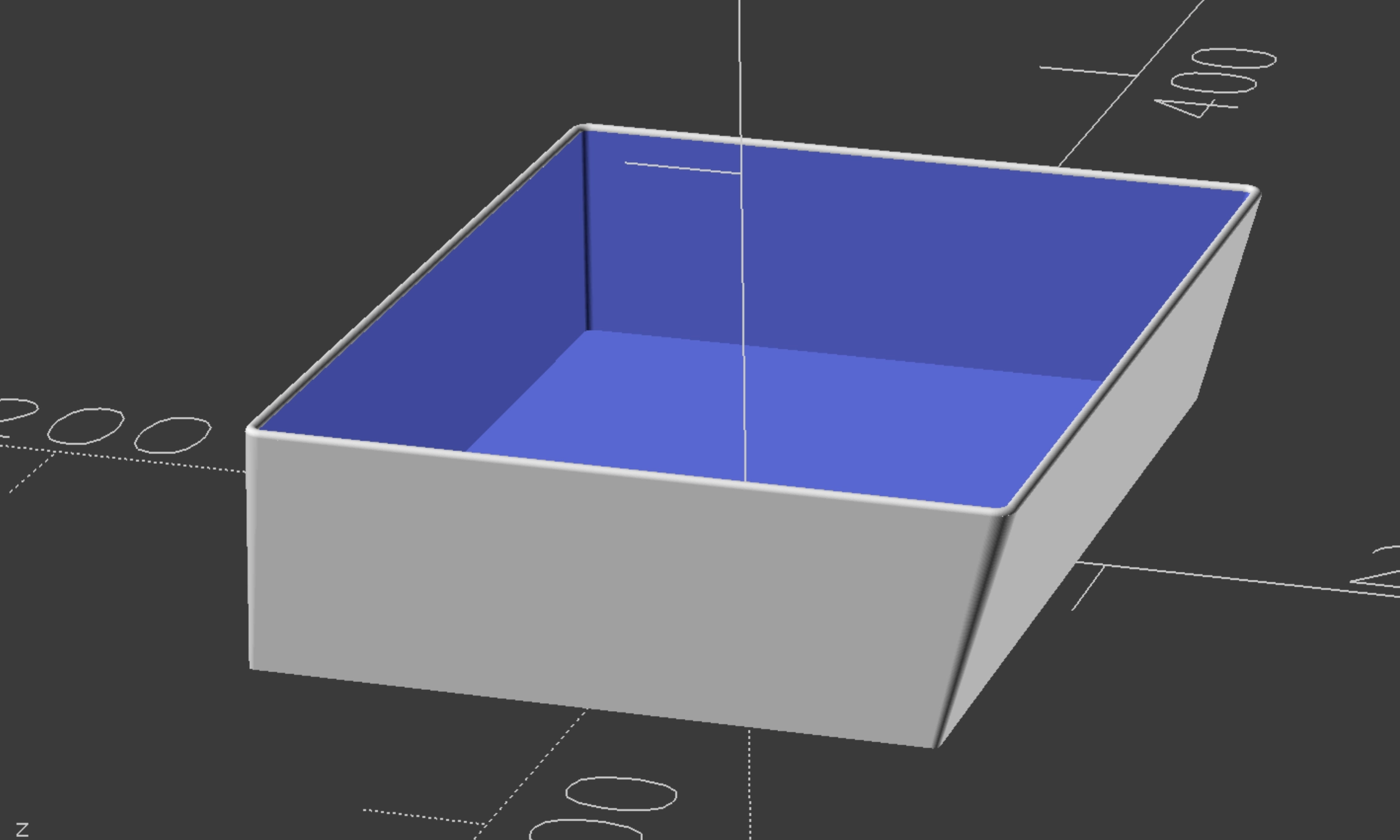
Today’s post is written by Olympia von Berg, founder of Organizing by Olympia, who brings a thoughtful perspective on how our spaces affect our mental well-being. With her experience helping clients create lasting systems rooted in intentional living, Olympia shares why organization is about so much more than just tidying up.
Our home is ideally our sanctuary, our peace and quiet, with peace of mind.
There is a lot to be said for keeping this space organized. The spaces that we occupy have underlying effects on how we feel, how well we can focus, and what kinds of thoughts we have.
Do you feel relaxed and calm and ready to rest when there is clutter on every surface? What about when you need to find something that should take a minute, but ends up taking 20, or you can’t find it at all?
The mental and emotional effects of living in a disorderly space have been studied, and the results are in; your well-being and quality of life are compromised.
So, let’s explore how our space can influence us—and how understanding the psychology of organization can improve our quality of life.
Visual clutter equals mental clutter.
A study conducted by UCLA found that homes that are cluttered tend to increase cortisol (the stress hormone) levels, particularly in women. So those moms that are tired and stressed from a day of work, that come home to a cluttered and unorganized home are operating with high levels of cortisol.
When cortisol levels increase, the impacts are more than just potentially obvious irritability. Sleep can be lost or fitful, focus is harder to gain and keep, emotions can become unmanageable.
This compounds over time, which in turn can shorten lives—and certainly the quality of those lives. Oftentimes it isn’t even recognized that the cluttered home space is what’s causing us to feel negative. We can think it’s “just how we feel.”

There are several things in life that can and do bring us stress, and it’s recommended to reduce as many of those as possible to live a more peaceful and fruitful life.
No matter how curmudgeonly someone may be, I think it’s fair to say that no one wants to live a stress-filled, discontented life. So, let’s do something about it.
Let’s take a step back and view our home objectively. Are there things that can be adjusted within our space to remove some of the physical clutter, in turn removing the mental clutter? Very likely the answer is yes!

Once you’ve addressed the clutter, the weight starts lifting, and one can feel a sense of calm. It’s like the difference between a dark tunnel and a beautiful meadow; the tunnel feels restrictive and gloomy, while the meadow feels open and full of hope.
That is precisely how a tidy space can make us feel. And once you get that feeling in your space, you’ll want to keep it.
The longer you maintain a decluttered and organized space, the more sensitive you become to when it’s not. It becomes a necessity to keep it orderly, because you can feel the difference.
Our brains have an impact on our emotions, so with the brain craving order as it naturally does, that leads to, whether recognized or not, emotional craving for order as well.
When we’re stressed, we tend to not tend to things very well, which leads to more mess. Let the stress-clutter cycle commence!
But wait, you don’t have to! It’s all about creating a system and habits that prevent the mess from developing in the first place.

When we see a pile developing on the countertops, and drawers with loose items every which way, it can cause anxiety and guilt. Anxiety from feeling out of control, suffocated, burdened by our surroundings—and guilt because we haven’t addressed it and so it keeps growing in a direction we don’t like or want.
The psychological and physiological loop of stress and clutter is real—and it’s a cycle we can break.
Having a clear space allows for a clear mind. It allows you to focus, make clear decisions, and tackle what you want and need to.
The impact on focus is that clutter is a type of “visual noise.” Whether you realize it or not, your mind is grappling to keep focus and attention on what you need, and what matters most to you, because the clutter is taking some of that attention.

When your brain is processing too much irrelevant information, it can lead to mental fatigue and reduced capacity for focus.
When we can focus, we generally find that we are motivated to be more productive in ways that we want and that make us happy in our lives.
Once the clutter is removed, and order is created, you have room to breathe. And breathing room leads to freedom of inspiration.
Who doesn’t want to feel inspired?! When we are inspired, our mood improves, and we can manage our lives effectively and evenly, with a sense of calm and contentedness.
Take it one step at a time.
Rather than hopping on Amazon and grabbing every home organizational tool available, take bite-sized approaches and ensure that you are building a system and using the tools that work best for you, long-term.
For example, say your countertops are out of control, and you don’t have the space you need to work or food prep. Evaluate what needs to be on the counter and what should be in a drawer, cupboard or closet.
This step will help you identify what types of tools you need to create an ordered system. Perhaps you need a filer for the mail, a basket for the keys and tiny items that come in with you from the day out, or nifty drawer organizers (wink-wink) to put all the current clutter into reliably organized and designated places in the drawers.

AnyDrawer’s custom-fitted drawer organizers are a game-changer in keeping items off countertops and in their own little space, tucked away in a drawer. By customizing the fit for your particular drawer spaces, you can know exactly what item fits where, so they end up where they belong and are easy to locate when you need them.
There will no longer be a need for what will soon become the former “junk drawer.”
Once you’ve tackled one spot in the home, move onto the next. Follow the trail of stress and flow.
By this I mean: what areas do you use the most, that their disorder and clutter lead to the most stress and impact on the flow of your daily life?

As you work your way through the home, taking the time to implement the tools and systems that you’ve decided will work for you, you will no doubt notice an improvement in your mental and emotional wellness.
You are taking charge of your space and, internally, through external actions, showing your self-worth and value.
The key to having a system is maintaining it.
This can take time and concerted effort to build habits of putting things back where they belong—every time. Once you’ve established this habit, it no longer takes effort. It just happens.
But take the time to build the habit so you can reach the zen organizational mind.
Once you make the decision to execute a home declutter and organization, the next step is to execute—to act.
This can be daunting to many, which is one of the reasons the task gets put on the back burner and folks don’t get to enjoy the freedom of an organized space.
But fear not! There are folks, like me, who love this task and helping people through the process.
For many people it’s a massive life change to get their home decluttered and organized, and professional organizers can be there to support not just the task at hand, but also the emotional and mental aspects of this change.
From virtual guidance to in-person action, professional organizers have your back and will make sure that the results are what you want, and how best serves you and your life.

